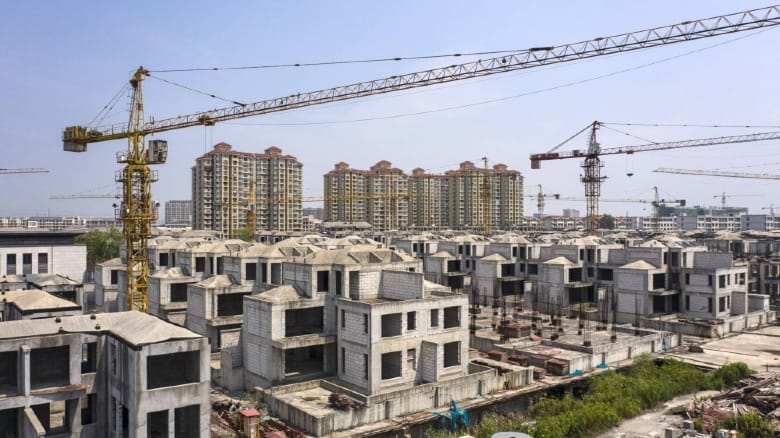
China’s housing market remains in the doldrums
China home sales and prices continue to plummet despite a raft of recent government measures to prop up the ailing property market, with the mainland’s pessimistic economic outlook and developers’ increased backlog of unfinished projects weighing on buyer appetite.
China’s top 100 developers sold RMB 390 billion ($55 billion) worth of new homes in November, representing a 29.6 percent year-on-year decline, according to local data provider China Real Estate Information. That follows a 27.5 percent year-on-year decline in October.
Home prices are also stuck in a downward trajectory, with data from the National Bureau of Statistics showing prices of new homes in 70 cities declining 0.38 percent in October from the previous month — the steepest decline since February 2015.
“The (year-on-year) decline in national new home sales narrowed in September and October 2023 from the troughs in June-August following intensive policy easing, but homebuyers’ sentiments remain fragile due to lingering concerns over private developers’ ability to deliver projects on a timely basis with acceptable quality as more developers face tight liquidity,” ratings agency Fitch said Tuesday in a report.
Stimulus Fizzles
New home sales saw a slight pickup in September and October driven by stimulus measures jointly issued by the People’s Bank of China and National Administration of Financial Regulation that went into effect on 25 September.

PBOC governor Pan Gongsheng is extending a helping hand to China’s housing market
Those directives lowered the nationwide minimum down payment to 20 percent and 30 percent for first- and second-time buyers respectively, while also allowing local governments to set their own down payment thresholds and interest rate floors. The policy also encouraged borrowers and banks to negotiate lower interest rates on existing mortgages or swap for a new loan.
But the effectiveness of the easing policies have thus far been short-lived, as homebuyers remain on the sidelines due to weakened consumer confidence amid a protracted economic slump.
The impact of government support for the real estate sector is more subdued than in the past, as the industry is no longer the primary driver of the nation’s economic growth or the guaranteed high-return investment it once was, according to James Macdonald, head of research and consultancy at Savills China.
“The key challenges for the market lie in rebuilding homebuyer confidence and ensuring household economic security, which will require more sustained efforts over an extended period,” Macdonald told Mingtiandi.
No Relief in Sight
China’s housing crisis has dented homebuyer confidence, with developers forced to delay construction of projects due to a persistent liquidity crunch.
The plight of China’s developers has unnerved Beijing, with authorities reportedly drafting a list of 50 developers eligible for financing support and allowing them to take out unsecured loans for the first time, according to media accounts. The government has also prodded banks to boost funding for developers in order to ensure housing projects get completed.
But the efficacy of the government’s relief measures is being tempered by China’s anaemic economic growth and stubbornly high youth unemployment, which have sapped consumer confidence and housing demand.
China’s statistics bureau stopped publishing data on the unemployment rate for the 16-to-24 age group after climbing to an all-time high of 21.3 percent in June, while the agency’s consumer confidence index hovered near record lows as of September.
“Policy changes have provided short-term relief and signal the government’s commitment to supporting the market, which is positive,” Macdonald said. “However, the structural transition in the sector will take time, and household confidence remains weaker than in the past due to the broader economic conditions.”
Aggregate annual sales of the country’s top developers are expected to plunge 15 percent in 2023, according to China Real Estate Information, while Fitch is projecting a 10 to 15 percent contraction in new home sales this year.
Leave a Reply